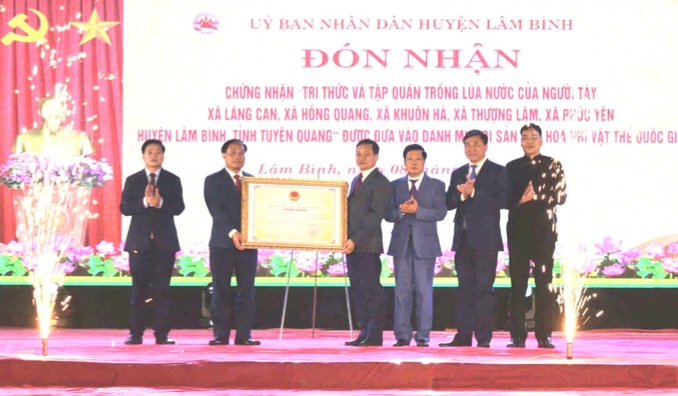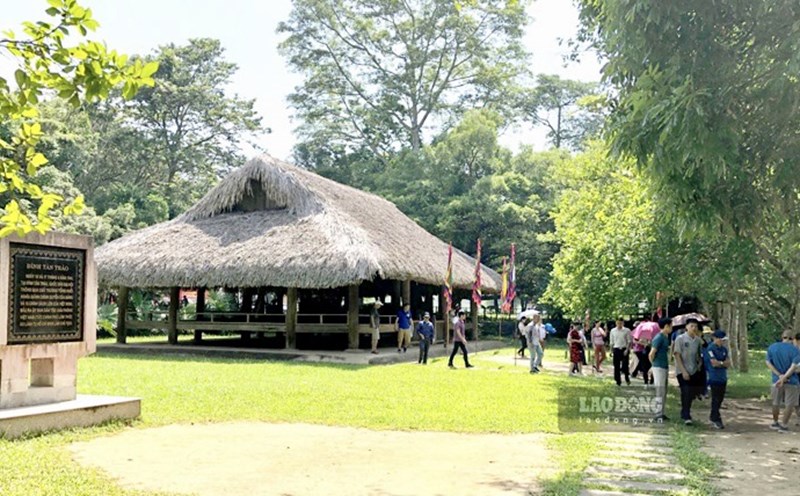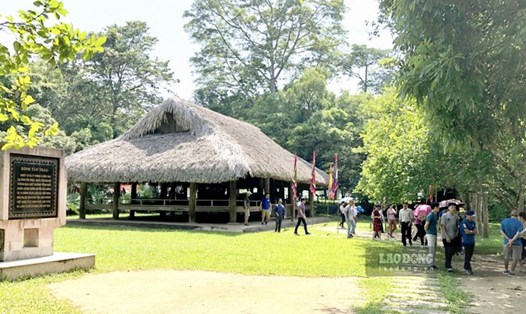On August 8, the People's Committee of Lam Binh district held a ceremony to receive the national intangible cultural heritage for knowledge and wet rice cultivation practices of Tay people in Lang Can, Hong Quang, Khuoc Ha, Thuong Lam and Phuc Yen communes.
Vice Chairman of the People's Committee of Lam Binh Chien Thi District affirmed that the knowledge and practices of wet rice cultivation of the Tay people are recognized as a national intangible cultural heritage is the pride not only for the district but also of the district but also of Tay ethnic community nationwide.

Lam Binh is a land with a cultural identity. Currently, the district has 12 ethnic groups living together, of which the Tay accounts for more than 60% of the population. In the history of living and developing, the Tay people have created a system of indigenous knowledge in wet rice cultivation.
The techniques of selecting breeds, planting and managing water sources have been accumulated and passed down for generations to ensure food sources and create a unique cultural identity.
Knowledge and practices of wet rice growing not only stop at production techniques but also associated with the spiritual life of the people. Traditional festivals such as cages, new rituals or folk customs are integrated in the crop, contributing to the creating meaningful cultural space.
Recognizing knowledge and practices of wet rice cultivation of the Tay people as intangible cultural heritage affirm the traditional value of the Tay people. At the same time, opening up sustainable development opportunities for Lam Binh district in the development of indigenous culture, promoting local tourism industry.




